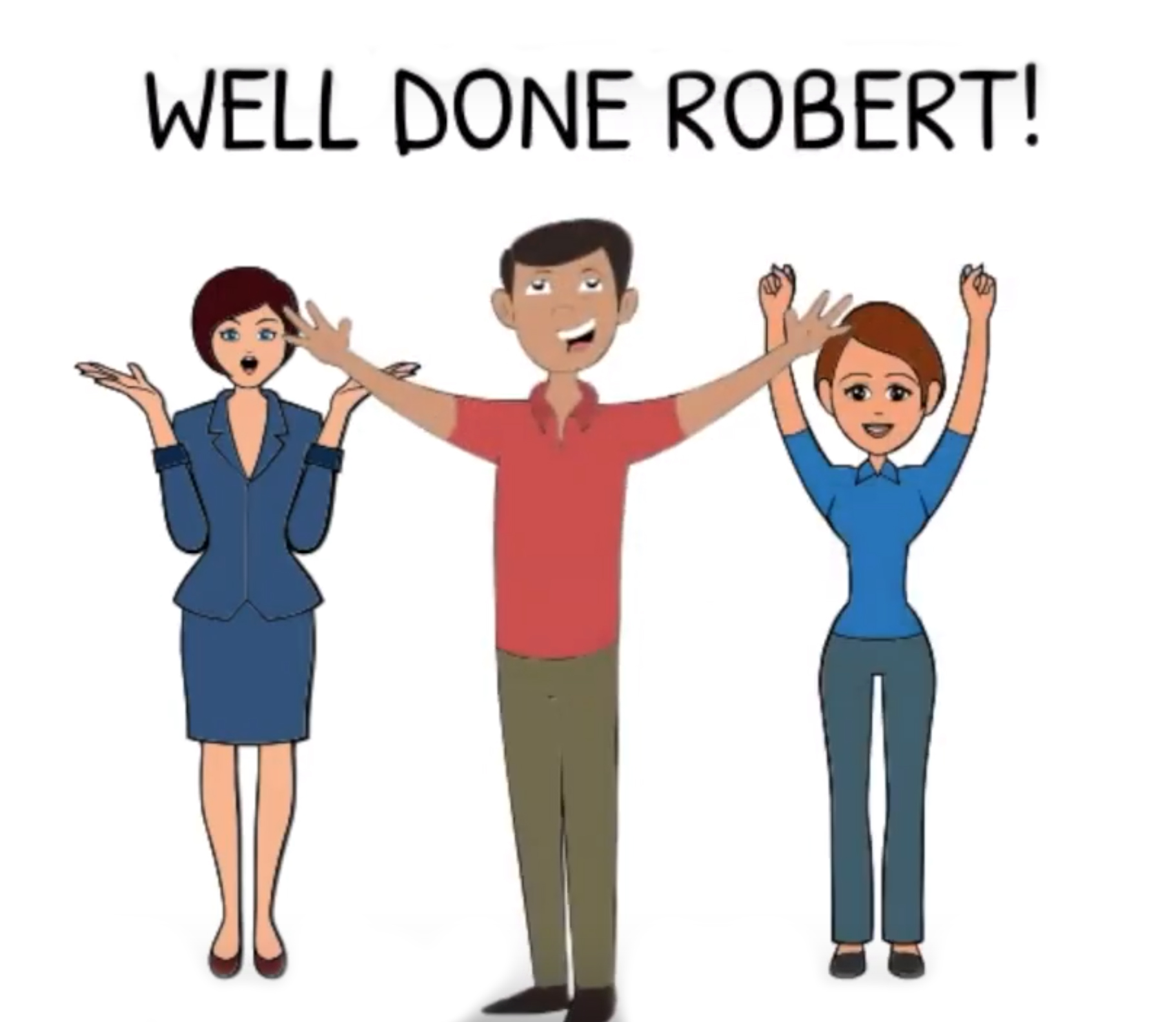Evaluating Share the Care

What and Why
Humanising the System chose to develop the idea of flexible and agile working to support relationships because it is in service of its vision: ‘Creating a relationship-centred culture, providing the right resources, support and education that enables care-experienced people to grow and thrive. A system that works.’
How and Why
Flexible and agile working means Corporate Parents are given trust from managers to respect their ability to do what is needed in a respectful manner. For example:
- develop relationships with care leavers in ways that suit individual situations;
- self-direct learning, development and peer network building with other Corporate Parents.
Our service design idea opens up space for a huge number of different backstage and front stage touchpoints and interventions, depending on the contexts, cultures and needs of particular Corporate Parents, Council departments, teams and care leavers. For example:
- extended flexi-time arrangements;
- simplified systems and processes for accessing petty cash;
- simplified systems and processes for working ‘out of hours’;
- increased autonomy over how and where Corporate Parents spend time with care leavers and other Corporate Parents;
- less rigorous requirements for documentation and paperwork.
Anticipated Service Design outcomes
At the start of this project the Co-Design Crew described the behaviours and experiences that people interpreted as loving and being the kind of relationship they were looking for. We’ve returned to them and identifed the experiences we think this service design concept creates space for.
For the workforce they include:

- We can help
- We believe in you (and mean it)
- We understand the bigger picture and how it relates to behaviours
- We’ll be there when care leavers need us through everything
- We’ll think the best of care leavers- help them improve

- I love you
- I accept you as you are
- What’s your opinion (asking)
- When you do… it makes me feel…
- I am here for you if you want to talk

- Helping you be heard by listening, enquiring
- Breaking boundaries (having permission to push professionalism)
- Not giving up- being there for life unconditionally
- Celebrating and congratulating
- Practical and emotional help- allowing care leavers to make mistakes
In all instances, our service design concept relates to behaviours described in our vision because our idea underpins what’s needed for:
- developing relationships with care leavers in ways that suit individual situations;
- self-directing learning, development and peer network building with other Corporate Parents.
With our service design idea in place at a policy level, design of specific touchpoints that are appropriate for different contexts and different needs are opened up. Flexible and agile working as an overarching policy leaves room for creative, responsive and responsible interpretation at team, individual and interpersonal levels. Flexible and agile working, to support relationships, will likely need different parameters and conversations for example in the Waste Department than in the Sports, Leisure and Culture Department, as well as with care leavers who have different aspirations, wants, needs, backgrounds, etc.
However, there will be crossover and lessons to be learned between departments, teams and through the various experiences of Corporate Parents and care leavers. Our idea recognises that flexible and agile working applies to Corporate Parents developing relationships between each by sharing stories, practice and experiences and also leaves space for linking care leavers together if that is wanted, needed, appropriate.
Reviewing the Corporate Parenting Service Design Principles
Service Design Principles are a set of considerations that help people make decisions while they are designing services and evaluate what they’ve designed. These Seven Corporate Parenting Service Design Principles were created after synthesising the Co-Design Crews research findings.


1. Design for Reciprocity
Relationships are a two-way street. Does our service design invite and enable people to connect as humans and care for one another?
Yes. Our service design recognises that relationships don’t just happen between 9-5, especially with a young person who is transitioning into adult life. Our idea wants to explore what a future Falkirk Council that has the conditions and resources which allow all Corporate Parents to be agile, flexible and responsive to care leavers looks like.

2. Design for parental approaches and roles
We don’t need to go the extra mile, they are one of our own. Does our service design enable Corporate Parents to be educated about and explore their parental approaches?
Yes, being trusted to work responsively and flexibly means having the autonomy to self-direct learning, ways of working and reflective/reflexive practices. Our service design helps us imagine a future where ‘going the extra mile’ eventually becomes obsolete because doing what needs to be done for and with someone is normalised.
Responsive – One size does not fit all. Being able to adjust and flex as things change between people and inside the Council.
Reflexive – Continuously developing and learning as a Corporate Parent by changing approaches and practices based on reflection. They acknowledge the ‘rules’ of relationship boundaries change over time.
Respectful – Honouring care leavers’ and co-workers’ needs, wants, experiences and differences.
Supportive – Corporate Parents use their positions and resources to uplift others and help them reach their full potential. They have regular check ins with care leavers
Principled and measured – Corporate Parents temper their autonomy with boundaries that are ethical, negotiated and consensual.
Does it support and celebrate Corporate Parents who claim care leavers and are consistently supportive? In a way. Our service design could help create a culture in which Corporate Parents who claim care leavers and are constantly supportive are ‘rewarded’ and celebrated by continuing to allow them the freedom to work alongside care leavers as they see fit.

3. Design for Love
Love is a set of behaviours which are felt. Does our service design enable Corporate Parents and care leavers to understand what love looks like in their relationship and support this in practice?
Yes. Our idea explicitly focuses on giving Corporate Parents the freedom to develop relationships with care leavers in ways each person sees fit. This includes space for Corporate Parents to make time for learning and development with other Corporate Parents and to develop a loving relationship with care leavers individually.

4. Design with sensitivity to time and timing
Quality and meaning trumps quantity without feeling. Does our service design recognise that life doesn’t happen between 9-5 and enable people to connect in a way that is meaningful to them?
Yes. Our service design recognises that relationships don’t just happen between 9-5, especially with a young person who is transitioning into adult life. Our idea wants to explore what a future Falkirk Council that has the conditions and resources which allow all Corporate Parents to be agile, flexible and responsive to care leavers looks like.

5. Design for where people are at and going
We are always learning in relationships. Is our service design sensitive to the different starting points people are at and who they are becoming, not where we presume or expect them to be because of their age, gender or role?
In a way. Our service design allows time and space for Corporate Parents and care leavers to be responsive to each other and to understand each other, however, it can’t prevent the biases Corporate Parents carry with them from playing out.

6. Design for saftey and trust
Safety is an illusion never to trust. Does our service design offer opportunities for people to challenge perceptions of organisational rules and unhelpful thinking patterns? To develop trust and negotiate the natural ebb and flow between people’s boundaries in a relationship?
Yes, our service design is fundamentally challenging to organisational rules and unhelpful thinking patterns. Our imagined future of Corporate Parents being allowed to work with agility and flexibility is in direct contrast to current ways of working which are hierarchical, layered, risk averse and fear based. Our service design calls for Corporate Parents to be autonomous, flat, trusted and exploratory in the ways in which they work with and for care leavers.
Yes, our service design puts total control over what, how and when boundaries are negotiated and re-negotiated as relationships grow, shrink or change.

7. Design to enable vulnerability and connection
Vulnerability is having the courage to show up and be seen when you have no control over the outcome. Vulnerability is a risk we have to take if we want to experience connection. Does our service design enable people to be themselves and enjoy connecting?
Yes, our service design centres trust between staff (backstage) and trust between staff and care leavers (front stage). Flexible and agile working centres sense of agency. Corporate Parents are trusted to call the shots about how, when and why they spend time, money and energy in service of building relationships and building their own confidence.
Is Share the Care Transformational Change?
We discussed the type of transformation we expected our concept to realise by using the Three Horizon Model. We identified the second horizon as the goal.
